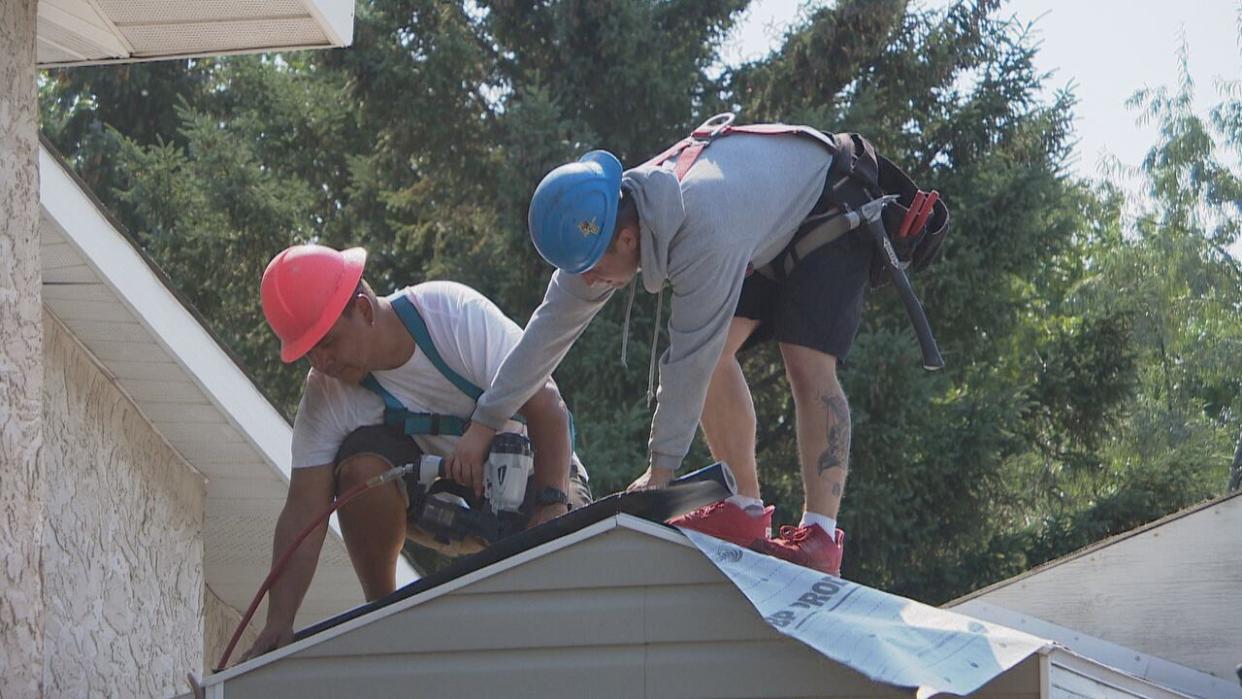Construction sector welcomes revisions allowing some work to resume under Calgary fire ban

Roofing, as well as other construction work that involves practices like hot air welding, can now go resume, though a Calgary fire ban remains in place due to a major water main break last week.
Calgary Fire Department (CFD) Chief Steve Dongworth announced the rule change during Tuesday's daily update on the water main break, saying he's been working closely with the Calgary Construction Association (CCA) to revise the definitions within the ban.
A prohibition on several burning-related activities has been in place since a massive water main break on June 10 plunged Calgary's supply into a critical state that also triggered outdoor water restrictions.
Under the fire ban, hot works were prohibited.
The city defines hot works as any work that involves open flames or producing heat or sparks, including, but not limited to, cutting, welding, soldering, brazing, grinding, adhesive bonding, roofing operations, thermal spraying and thawing pipes.
"We know some of these restrictions had an impact on the type of work that could be carried out on construction sites and on the workers themselves," said Dongworth.
"We've been working …to both clarify the direction given by the fire department and also to come up with solutions that support the needs of industry."
In a statement, the CCA welcomed the change, saying it was happy to see the efforts of the CFD to balance the safety of Calgarians with the operational needs of the construction industry.
"We appreciate the CFD's recognition of the importance of roofing work involving hot air welding and cold processes roofing in new construction projects," reads the statement.
"While certain high risk hot works, such as those involving open flames or bitumen/tar kettles on new and existing buildings, remain prohibited, we understand these measures as they prioritize the most high-risk operations."
Other activities that were previously prohibited remain banned.
In an interview on CBC's the Calgary Eyeopener earlier in the day, CCA president and CEO Bill Black said the sector was feeling the crunch because of the ban, expressing concern that there could be a backlog if work doesn't continue soon.
"Every day is critical," Black said.
"It's not just about people earning money and being able to provide for their families, but it's also about the industry able to ensure projects are not delayed with other projects down the road."
Black added that around 800 commercial roofers were sitting at home on Monday and unable to work during "prime roofing weather."
LISTEN | Calgary Construction Association president Bill Black talks about the impacts of the fire ban on construction in the city
While Black acknowledged the dangers that the works can pose, he advocated for a change in the rules and definitions on behalf of the industry during a meeting with Dongworth on Monday.
"We understand the safety concerns and are willing to invest in additional resources and individuals and fire professionals to oversee the work until such a time as the fire department is more confident and has the resources it needs," he said.
Dongworth said that low-risk work can go ahead as long as a fire watch is maintained for an hour post-application and is followed by an inspection four hours after completion.
Additional fire extinguishers must also be available on site following hot works activities.


